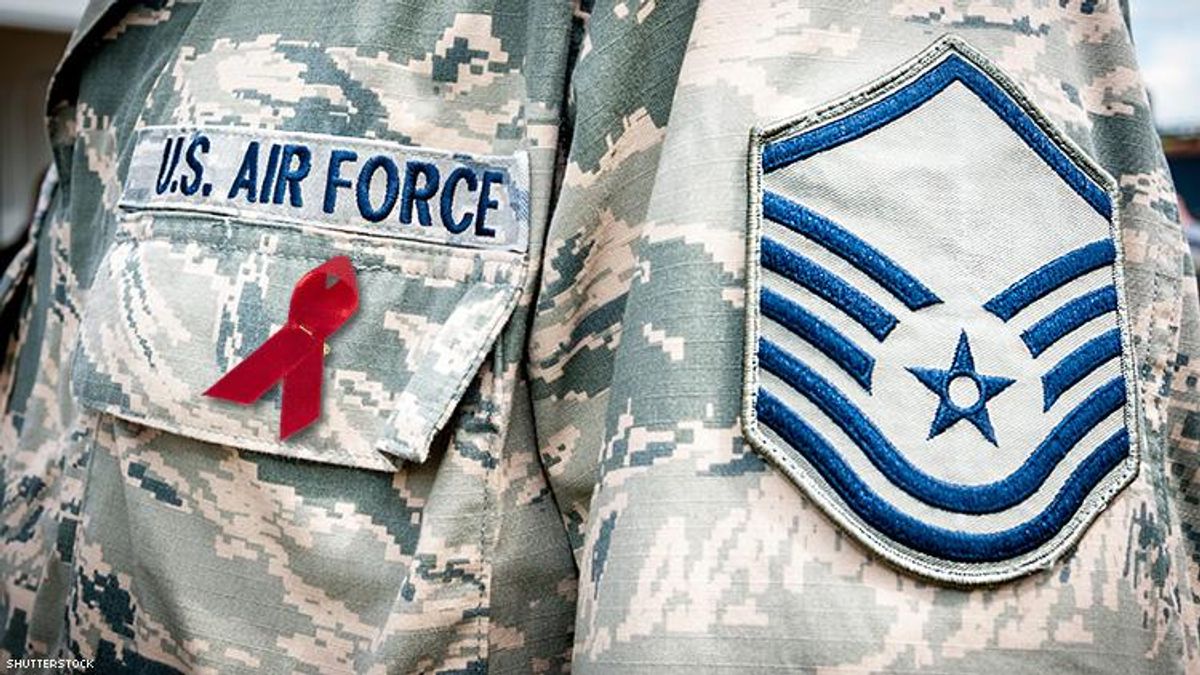Just a few days before the holidays last year, I received notice that I was going to be discharged from the Air Force -- simply because I had been diagnosed with HIV. Learning the Air Force would end my military career because of my newly discovered medical condition was extremely demoralizing. But I wasn't about to let them take away my dreams without a fight.
Today, the lawsuit I filed to challenge the military's HIV-related personnel policies is heading to the Fourth Circuit Court of Appeals, because the Trump Administration is appealing a court order we obtained in February, preventing the Air Force from discharging me and other Airmen living with HIV before the case is decided.
I come from a military family, and I knew I wanted to serve my country from a very young age. My mother and father served in the Army and Air Force, respectively, and I have a sibling who serves alongside me in the Air Force. Following in their footsteps, I joined the Air Force right after high school and have since served overseas on multiple occasions.
I was given nothing but high marks on all my enlisted performance reports and maintained an excellent level of physical fitness. Throughout my 7-year career, I have received numerous Squadron, Group, Wing, and Team level awards and been individually lauded by numerous commanders and senior enlisted leaders. Then, in 2017, I was diagnosed with HIV and everything changed.
Despite recommendations that I be returned to duty from both my commander and my military doctor, who specializes in infectious diseases, the Air Force chose to discharge me. Like the Army, the Air Force has had a long-standing policy of not deploying service members with HIV. I knew I would be subject to that restriction on my service, even though it no longer makes sense given what we now know about HIV. But what really blindsided me was the decision that I was going to be discharged from the Air Force.
While people living with HIV have long been prevented from enlisting, those who were diagnosed after being in the military for a period of time were retained, given appropriate treatment, and utilized in roles that did not require deployment. Now, out of the blue, the Air Force was discharging me and--I subsequently learned--was discharging other Airmen who had been recently diagnosed. And they were doing this in direct violation of their own regulation, which states that "HIV seropositivity alone is not grounds for medical separation[.]"
The timing of this change in Air Force practices is particularly puzzling, given how far we have come on HIV and how much we now know about its treatment and the low to zero risk of transmission in most contexts.
As most people are aware, with proper treatment, HIV is now a chronic, manageable condition that has barely any impact on life expectancy. What some people don't know is that the Centers for Disease Control and Prevention (CDC) recently made clear that being on successful treatment--and having a suppressed or "undetectable" viral load--makes it impossible to transmit HIV sexually. The effects of treatment on transmission risks in that context reduce the already much lower--perhaps non-existent--risk of transmission through combat activities to zero. Today, there is simply no reason that a servicemember with HIV cannot be deployed anywhere in the world.
And that's why leading medical and public health organizations, as well as retired military leaders--including former secretaries of the Navy, Army and Air Force--filed three friend-of-the-court briefs in support of our case.
se.
At trial, my attorneys will prove that these discriminatory, outdated and stigmatizing policies against HIV-positive servicemembers are unconstitutional and must be ended. Today, however, we simply need the Fourth Circuit to recognize that the Air Force is violating its own regulations by discharging me and other Airmen living with HIV--and to allow us to remain in the Air Force, along with hundreds of others living with HIV, until the case has been decided at trial.
We shouldn't have to fight so hard to fight for our country -- but this is just one more battle from which I don't intend to back down.
Richard Roe is a plaintiff in the lawsuit Roe and Voe v. Shanahan, proceeding anonymously to protect the privacy and confidentiality of the plaintiffs. Along with Harrison v. Shanahan and Deese and Doe v. Shanahan, Roe & Voe v. Shanahan is one of three lawsuits that Lambda Legal and The Modern Military Association of America MMA have brought to challenge military policies that discriminate against people living with HIV.


















































































